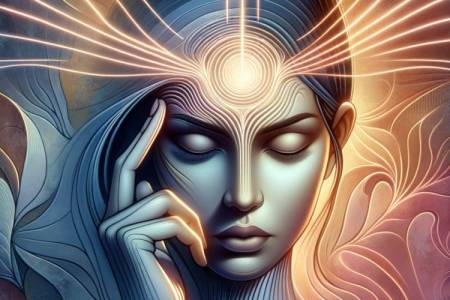Postcoital Dysphoria: The Mystery of Sadness After an Intimate Moment
Sex is meant to be the peak of intimacy, joy, and connection. For many, it’s an act that leaves a feeling of satisfaction and closeness. But what if, instead of these positive emotions, you experience sadness, anxiety, or even depressive states? This phenomenon, known as postcoital dysphoria (PCD), is real and affects a surprisingly large number of people. This article delves into what postcoital dysphoria is, how it manifests, and what you can do to cope with it.
What is Postcoital Dysphoria?
Postcoital dysphoria, often referred to as postcoital tristesse (sadness), is a condition where an individual experiences negative emotions such as sadness, anxiety, or irritability shortly after sexual intercourse. These feelings can last from a few minutes to several hours. They may be intense, which can be confusing and distressing for those experiencing them, especially if they otherwise have a healthy and satisfying sex life.
You’re Not Alone
My friend Jane, a thirty-year-old woman, encountered postcoital dysphoria for the first time after several months in a happy relationship: "After every wonderful evening with my boyfriend, I suddenly felt terribly sad and cried for no reason. I didn’t understand it, because everything else in our relationship was great," Jane says. After consulting a therapist, she found out that she was suffering from PCD, which helped her understand and manage her emotions.
Causes and Mechanisms of PCD
The exact causes of PCD are not entirely clear, but there are several theories. One theory suggests that hormonal changes occurring after orgasm can lead to emotional fluctuations. Another theory links PCD to psychological factors such as anxiety, trauma, or low self-esteem.
A 2011 study published in the Journal of Sexual Medicine found that up to 46% of women had experienced postcoital dysphoria at least once in their lives, while 5% reported experiencing it frequently. Another study from 2015 showed that this phenomenon is not limited to women – men can also suffer from PCD.
Tips and Advice for Managing PCD
- Open Communication: Share your feelings with your partner. Open conversation can help both parties better understand what’s happening.
- Finding the Cause: If PCD recurs, consider consulting a therapist or sexologist to help identify potential causes.
- Relaxation and Self-Care: Set aside time for relaxation and self-care after sex. This could be a quiet bath, meditation, or simply sitting quietly with your partner.
- Journaling: Record your feelings after sex and look for patterns that might point to specific triggers.
- Physical Activity: Exercise can help regulate mood and reduce anxiety.
Thomas, a forty-year-old man, shares his experience with PCD: "After intense sexual experiences, I often felt empty and lonely. I couldn’t understand why I would be sad after something so wonderful. A therapist helped me realize that it was connected to past relationship traumas."
Postcoital dysphoria can be confusing and distressing, but it’s important to know that you are not alone. Many people experience similar feelings, and there are ways to cope with them. The key is open communication, self-care, and seeking professional help if necessary. Remember, it’s important to listen to your body and mind and not hesitate to seek support when needed.

 Tongue Tornado
Tongue Tornado 













Comments (0)
Facebook Comments (0)